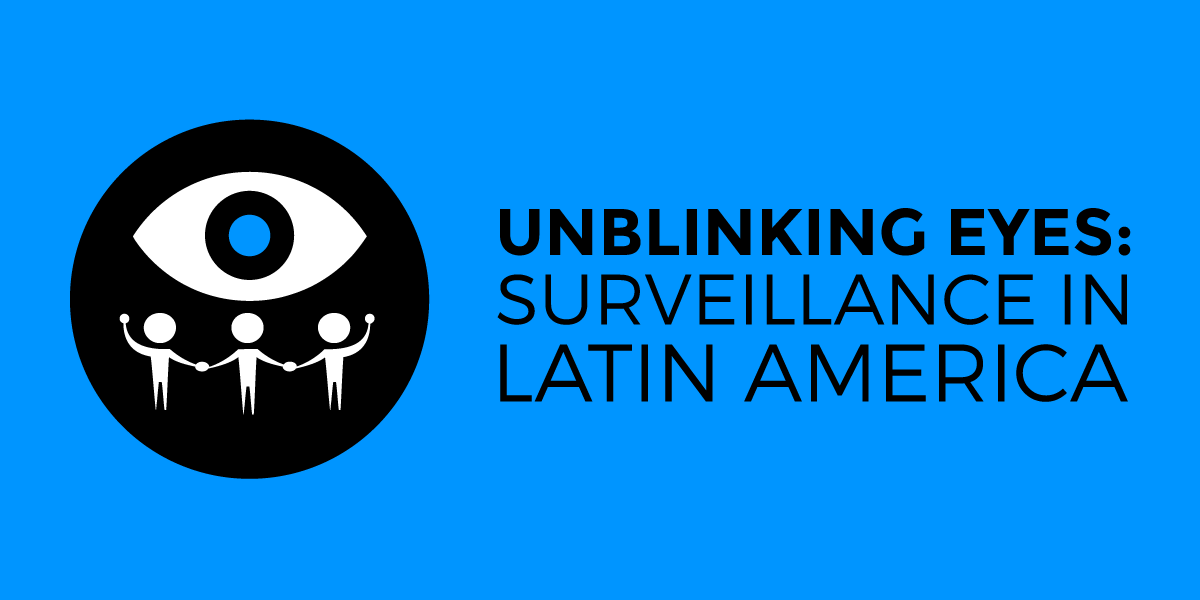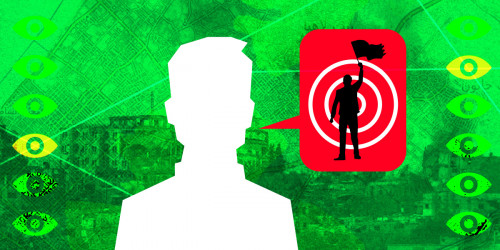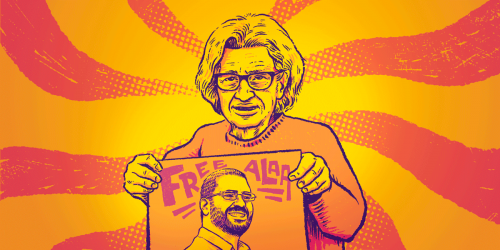New Reports Show How Vague Laws Can Pave the Way for Human Rights Violations
We're proud to announce today's release of “Unblinking Eyes: The State of Communications Surveillance in Latin America,” a project that documents and analyzes surveillance laws and practices in twelve Latin American countries. For over a year, we have worked with partner organizations across Latin America (Red en Defensa de los Derechos Digitales, Fundación Karisma, TEDIC, Hiperderecho, Centro de Estudios en Libertad de Expresión y Acceso a la Información, Derechos Digitales, InternetLab, and Fundación Acceso). Each of them published individual reports documenting the state of communications surveillance in each of these countries. Then, EFF took that research and other recent papers, and produced a broader report that compares surveillance laws and practices in Argentina, Brazil, Chile, Colombia, El Salvador, Guatemala, Honduras, Peru, Mexico, Nicaragua, Paraguay, and Uruguay. Moreover, together with Derechos Digitales, we published a legal analysis for the 13 Necessary and Proportionate Principles, explaining the legal and conceptual basis of each of the Principles in light of the inter-american human rights standards. Finally, we published Who Can Spy On Us? A Visual Guide of the state of communications surveillance in Latin America.
On this day, let’s take a minute to reflect on the horrific consequences of unchecked surveillance.
The Terror Archive
In December 1992, following a hastily-drawn sketch of a map given to him by a whistleblower, the Paraguayan lawyer Martin Almada drove to an obscure police station in the suburb of Lambaré, near Asunción. Behind the police offices, in a run-down office building, he discovered a cache of 700,000 documents, piled nearly to the ceiling. This was the “Terror Archive,” an almost complete record of the interrogations, torture, and surveillance conducted by the Paraguayan military dictatorship of Alfredo Stroessner. The files reported details of “Operation Condor,” a clandestine program between the military dictatorships in Argentina, Chile, Paraguay, Bolivia, Uruguay, and Brazil between the 1970s and 1980s. The military governments of those nations agreed to cooperate in sending teams into other countries to track, monitor, and kill their political opponents. The files listed more than 50,000 deaths and 400,000 political prisoners throughout Argentina, Bolivia, Brazil, Chile, Paraguay, Uruguay, Colombia, Peru, and Venezuela.
Stroessner's secret police used informants, telephoto cameras, and wiretaps to build a paper database on everyone that was viewed as a threat, plus their friends and associates. The Terror Archive shows how far a country's government might sink when unchecked by judicial authorities, public oversight bodies, and the knowledge of the general public.
That was a quarter century ago.
A modern Operation Condor would have far more powerful tools at hand than just ring-binders, cameras, and wiretapped phones. Today's digital surveillance technology leaves the techniques documented in the Terror Archive in the dust.
Twentieth century surveillance law considers the simple wiretapping of a single phone line, with no guidance on how to apply these regulations to our growing menagerie of spying capabilities. When new surveillance or cyber-security laws are passed, they are written paper over existing practice, or to widen existing powers—such as data retention laws that force phone and Internet companies to log and retain even more data for state use. Each of these new powers is a ticking time-bomb, waiting for abuse. One way to stop these powers from being turned against the public is to create robust and detailed modern privacy law to constrain its use, an independent judiciary who will enforce those limits, and a public oversight mechanism that allows the general public to know what its country's most secretive government agents are up to in their name.
Unfortunately, legislators and judges within Latin America and beyond have little insight into how existing surveillance law is flawed or how it might be fixed. To assist in that imposing task, EFF has released “Unblinking Eyes: The State of Communications Surveillance in Latin America.”
For over a year, we have worked with partner organizations across Latin America (Red en Defensa de los Derechos Digitales, Fundación Karisma, TEDIC, Hiperderecho, Centro de Estudios en Libertad de Expresión y Acceso a la Información, Derechos Digitales, InternetLab, Fundación Acceso) to shed a light on the current state of surveillance in the region both in law and in practice. We've carefully documented existing laws in 13 countries, and gathered evidence of the misapplication of those laws. Our aim is to understand the legal situation in each country, and contrast them with existing human rights standards. For this work, we analyzed publicly available laws and practices in Argentina, Brazil, Chile, Colombia, El Salvador, Guatemala, Honduras, Peru, Mexico, Nicaragua, Paraguay, Uruguay, and the United States and published individual reports documenting the state of communications surveillance in each of these countries. Then, we took that research and produced a broader report that compares surveillance laws and practices throughout the entire region.
Our project was not limited to legal research, however. We mixed our legal and policy work with on-site training throughout the region for digital rights activists, traditional human rights lawyers, investigative journalists, activists, and policy makers. We explained how surveillance technologies work and how governments must apply international human rights standards to their laws and practices in order to appropriately limit those legal powers. We also mixed our legal and policy workshops with technical advice on how our partners in the region can protect themselves against government surveillance.
What have we learned?
Given the deeply rooted culture of secrecy surrounding surveillance, it is hard to judge the extent to which states comply with their own published legal norms. Ensuring that law not only complies with human rights standards but also genuinely governs and describes the state's real-world behavior is an ongoing challenge. Even still, we identified deficiencies that are widespread throughout the region and are in need of special and immediate action.
Here are our recommendations:
The culture of secrecy surrounding communications surveillance must stop. We need the ensure that civil society, companies, and policy makers understand the importance of transparency in the context of surveillance, and why transparency reporting from the companies and the state is crucial to preventing abuses of power.
State officials and civil society must ensure that written norms are translated into consistent practice and that any failure to uphold the law is discovered and remedied. Judicial guidance from impartial, independent, and knowledgeable judges is needed.
States should have dedicated communications surveillance laws rather than a jigsaw puzzle of numerous provisions spread throughout various legislation and these laws should be necessary, proportionate, and adequate.
The region should commit to implementing public oversight mechanisms that are carefully matched in resources and authority over those who wield these powers.
Individuals need to be granted due process, and a right to be notified about a surveillance decision with enough time and information to challenge that decision or seek other remedies whenever possible; innocent individuals affected by surveillance need avenues for redress.
We need a strong civil society coalition working on these issues. With the help of watchful and informed judges and legislators, we hope that digital technology will be used wisely to protect, not violate, human rights. We must ensure that we build a world where the Terror Archive remains a grim record of past failings, not a low-tech harbinger of an even darker future.
Lastly, the problems encountered in Latin America are not isolated. From the United States to Australia, from France to Argentina, surveillance technology and techniques are on the rise, yet there is limited public awareness about the civil liberties implications of these rapid changes. Activists should keep pushing for the 13 Principles to protect privacy and restrict digital surveillance.
Read our reports, and learn about the situation of surveillance in Latin America. Join us to defend our rights and those of the future. Below you can find some key findings for each country.











